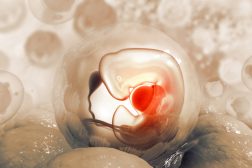Definition
noun
A quantitative immunodiffusion technique used to detect the level of protein (antigen) in a sample by measuring the diameter of the ring of precipitin formed by the complex of the protein (antigen) and the antiserum (antibody).
Supplement
The procedure involves placing of a solution of protein (antigen) into a well cut into an agarose gel containing the evenly distributed antiserum (antibody). As the protein (antigen) diffuses out of the well, it complexes with the antiserum (antibody) and forms a precipitin ring, the diameter of which is proportional to the quantity of the protein (antigen) in the well.
Compared with microbial diffusion assays, this technique is less precise as it gives a rather relatively insensitive estimation of the concentration of antigen. However, it has the advantage of specificity. Thus, it can be applied when sensitivity is not required but specificity is, and antibody is plentiful. It is commonly used in clinically detecting levels of blood proteins in a patient.
See also: antigen.
Dictionary > Radial immunodiffusion
You will also like...

Still Water Animals
Animals living in aquatic habitats have diversified and evolved through time. They eventually occupy ecological niches a..

Biosecurity and Biocontrol
This lesson explores the impact of biosecurity threats, and why they need to be identified and managed. Examples to incl..

Water in Plants
The movement of molecules (specifically, water and solutes) is vital to the understanding of plant processes. This tuto..

New Zealand’s Unique Flora
If New Zealand has lots of unique animals, it's also got a whole lot of unique plants. Find out more about some of them,..

Running Water Freshwater Community Factors
This tutorial noted some of the physical and chemical factors that provide the framework of a running water community in..

Growth and Development of a Human Baby
Upon fertilization, a zygote forms and develops into an embryo. This tutorial elaborates on the growth and development f..

